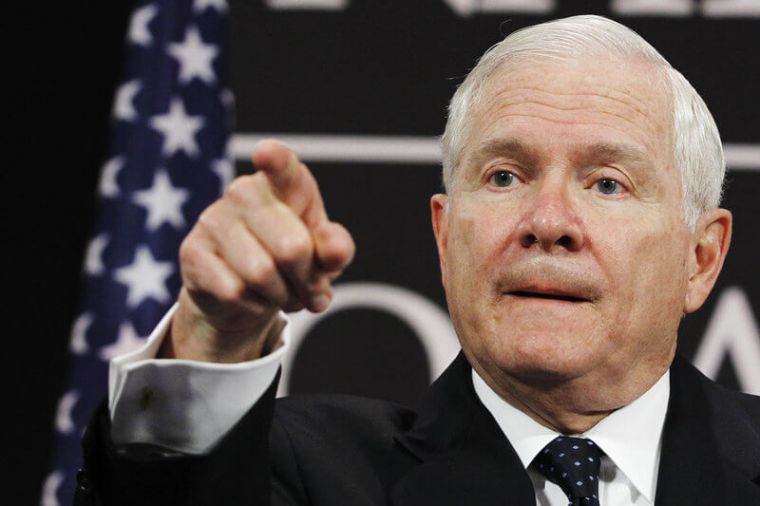U.S. Boys Scouts chief says ban on gays not sustainable amid mounting defiance

In an unprecedented move, Robert Gates, the president of the Boy Scouts of America, said the organization's ban on openly gay adults is no longer sustainable even as he called for major reforms to prevent "the end of us as a national movement."
"We must deal with the world as it is, not as we might wish it to be. The status quo in our movement's membership standards cannot be sustained," Gates, the former defense secretary and C.I.A. director, said at the National Annual Business Meeting on Thursday in Atlanta.
Gates said the events in the past year have confronted the Boy Scouts with "urgent challenges I did not foresee and which we cannot ignore."
Gates referred to recent moves by Scout councils in New York City and Denver to defy the ban, noting that "more and more councils (are) taking a position in their mission statements and public documents contrary to national policy."
Gates told the audience of the changes taking place in the U.S. including debates in Indiana and Arkansas on discrimination based on sexual orientation and the impending U.S. Supreme Court decision on gay marriage.
"I am not asking the national board for any action to change our current policy at this meeting. But I must speak as plainly and bluntly to you as I spoke to presidents when I was director of C.I.A. and secretary of defense," he said.
He said he expects more councils to openly challenge the ban on gay adults. "While technically we have the authority to revoke their charters, such an action would deny the lifelong benefits of scouting to hundreds of thousands of boys and young men today and vastly more in the future. I will not take that path," he said.
Gates said dozens of states from New York to Utah are passing laws that protect employment rights based on sexual orientation.
"Thus, between internal challenges and potential legal conflicts, the B.S.A. finds itself in an unsustainable position. A position that makes us vulnerable to the possibility the courts simply will order us at some point to change our membership policy," he said.
He said this could happen soon, citing the 2010 court decision in California that overturned the US Military's "Don't Ask, Don't Tell" policy.
Gates warned that "we cannot predict if or when this might happen to us, but I personally believe our legal defenses have weakened since the Dale case. And if we wait for the courts to act, we could end up with a broad ruling that could forbid any kind of membership standard, including our foundational belief in our duty to God and our focus on serving the specific needs of boys."
"Waiting for the courts is a gamble with huge stakes. Alternatively, we can move at some future date – but sooner rather than later – to seize control of our own future, set our own course and change our policy in order to allow charter partners – unit sponsoring organizations – to determine the standards for their scout leaders," he said.
This, he said, will allow churches, which sponsor 70 percent of scout units, to establish leadership standards consistent with their faith.
"We must, at all costs, preserve the religious freedom of our church partners to do this. Our oath calls upon us to do our duty to God and our country. The country is changing and we are increasingly at odds with the legal landscape at both the state and federal levels," he said.
Gates added, "For me, I support a policy that accepts and respects our different perspectives and beliefs, allows religious organizations – based on First Amendment protection of religious freedom – to establish their own standards for adult leaders, and preserves the Boy Scouts of America now and forever. I truly fear that any other alternative will be the end of us as a national movement."











